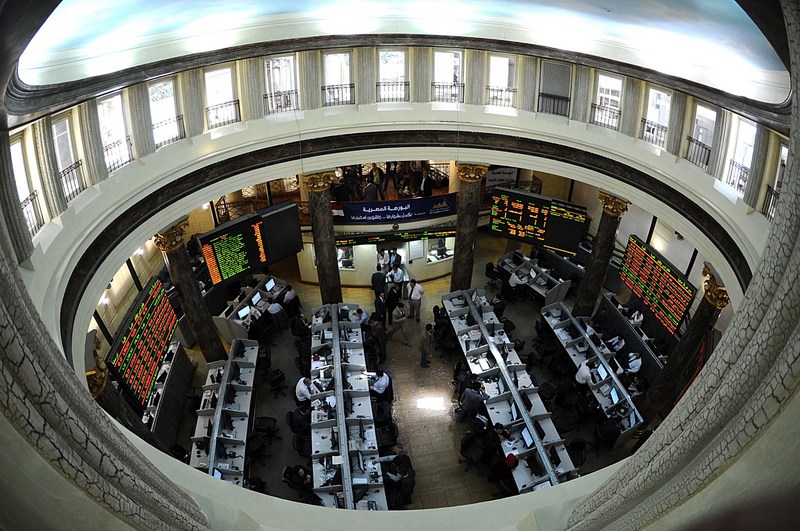
(Photo Cabinet Handout)
By Mohamed Ayyad and Mostafa Fahmy
Prime Minister Ibrahim Mehleb will hold a meeting with UAE Minister of State Sultan Al-Jaber, Saudi Minister of Finance Ibrahim Al-Assaf, and a Kuwaiti representative within two weeks to direct funds offered by the GCC at March’s Economic Summit, said Minister of Investment Ashraf Salman.
Saudi Arabia, the UAE and Kuwait promised to offer financial aid worth $12bn. This financial aid consists of investments and bank deposits at the Central Bank of Egypt (CBE).
Salman mentioned that Al-Jaber and Al-Assaf will be the mediators between the Egyptian and the GCC governments. They will follow up with the GCC investment plan amounting to $6bn, to be spent starting from fiscal year (FY) 2015/2016.
In a statement in Alexandria on Thursday, Salman told Daily News Egypt that President Abdel Fattah Al-Sisi will issue the decree of halting capital gains tax within three weeks. It will be applied by 17 May 2015. Tax payers will receive the amount of tax paid between 17 May and the issuance of the decree with official statements.
Since the tax law was issued in July 2014, Egyptian investors were not paying while foreign investors were. As a result, an offset should be made to balance between the amount collected from the foreign investor since 17 May and the issuance date, on one side, and the amount received since the collection date, from the other side. Compensation should be returned to the foreign investor.
Salman added that by the end of this year, the Egyptian investor should pay taxes for the period between July 2014 and 17 May 2015.
“We are currently forming a committee in the ministry to qualify public projects like the investment banks’ role during the Economic Summit,” said Salman.
Salman did not rule out abolishing some of the 25 Memorandums of Understanding (MoUs) which took place at the Economic Summit, of which seven are in the housing sector. This is especially given that the period of converting the MoUs into contracts is limited to only three months. However, he said that “we may present these projects to other investors or renegotiate over them again with the same investors”.
Salman disclosed that the Minister of Finance, Hany Kadry Dimian, would submit the final draft of the last tax amendments to President Al-Sisi to approve, after Dimian returns from a promotional tour he is currently undertaking in New York, the UAE and London.
The amendments would include unifying the tax rate at 22.5%, which will affect the projects of the economic zones of a special nature in the area of Suez Canal.
“The final draft includes abolishing the Rich Tax that is determined by 5% and is still in force; the adjustments would be applied on the new tax returns,” Salman added.
Salman said Egypt is suffering from a real crisis in the dollar availability as a result of the depletion of all the dollar sources from sectors such as tourism, foreign investment, in addition to the lack of exports.
He disclosed that the new Investment Law will give the decisions of the committees settling disputes the force of law, to make the administration parties that refuse to implement these decisions abide by it. Moreover, the activation of the single-window system would be through a decision by President Al-Sisi according to each activity.
“The public and private free zones will not be abolished as it was said, but we will impose a 1% fee on transit cargos with the aim of storage, while the cargos that have a specific destination will be exempted,” Salman said. He clarified that the second type is the one that enters the country to come out to a specific country in a specific time.
“It was agreed with Ministry of Justice that the Investment Law would include cancelling the criminal accountability against investors in the administrative issues.”
The minister explained the reason behind keeping free zones saying that “the public and private free zones export products of total $8.2bn annually, and non-petroleum materials with $6.1bn, which is equal to 25% out of the total exports of Egypt. These zones have investments of about $21bn.”
Salman disclosed that it was agreed with Dimian to settle regulations for investing in private free zones. The regulations included that any new project in the private free zones is required to be jointly presented by both Ministers of Finance and Investment to the cabinet as a prelude to approving it.



